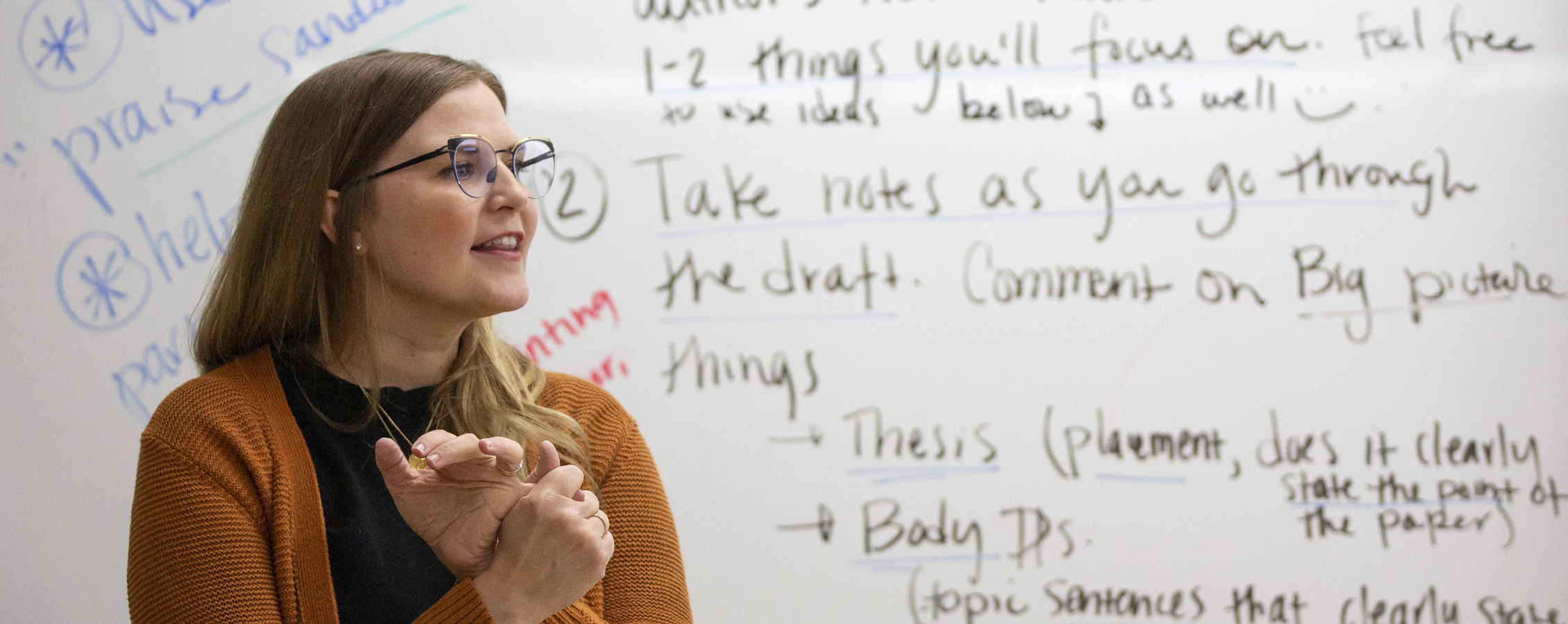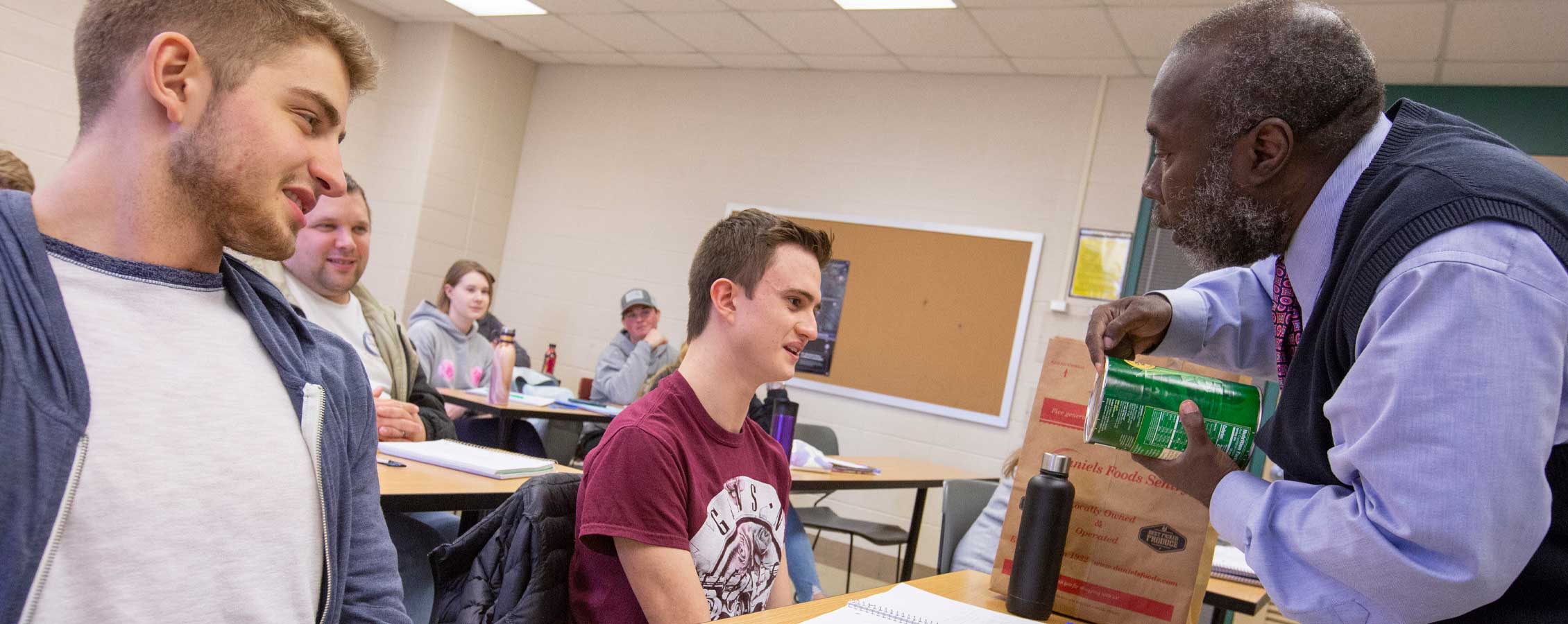ACADEMIC PROGRAMS
Whether you are just starting your college journey, are returning to get a new degree, or want to gain valuable skills for the next steps in your career, the College of Integrated Studies at the UW-Whitewater at Rock County campus offers a variety of courses and curriculum designed for your specific needs.
What makes your academic experience unique at URock?
- Low student-faculty ratio
- Small class sizes
- Faculty and staff dedicated to providing individual attention
- Guaranteed transfer to all University of Wisconsin campuses, any major
- Engaging college experience, including access to undergraduate research, internships, participation in music, theatre and art, as well as an active student government and a wide range of clubs and competitive sports to support your co-curricular experience.
To help you succeed on your journey, we offer flexible degree pathways in both in-person and remote formats to best fit your busy schedules.
Learn more about our academic programs below!
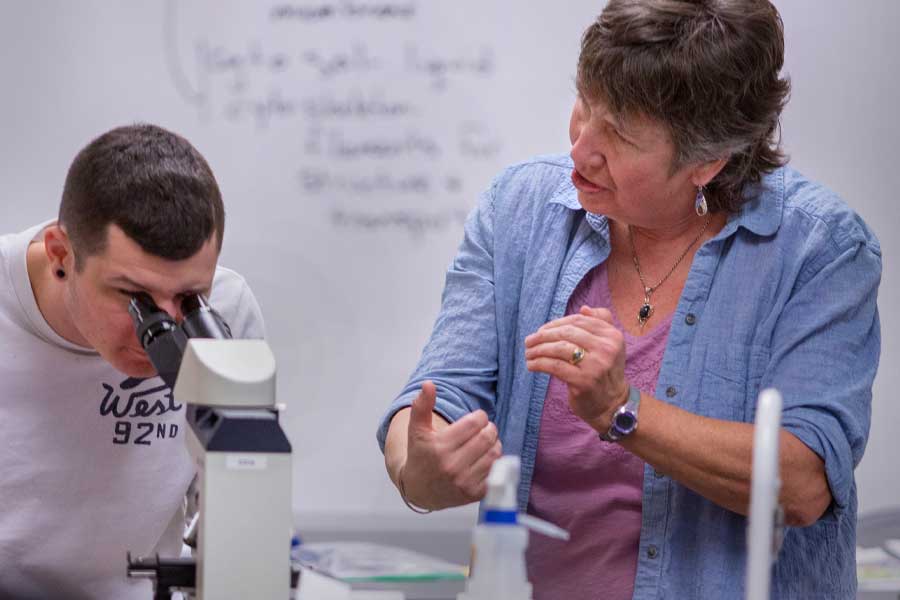
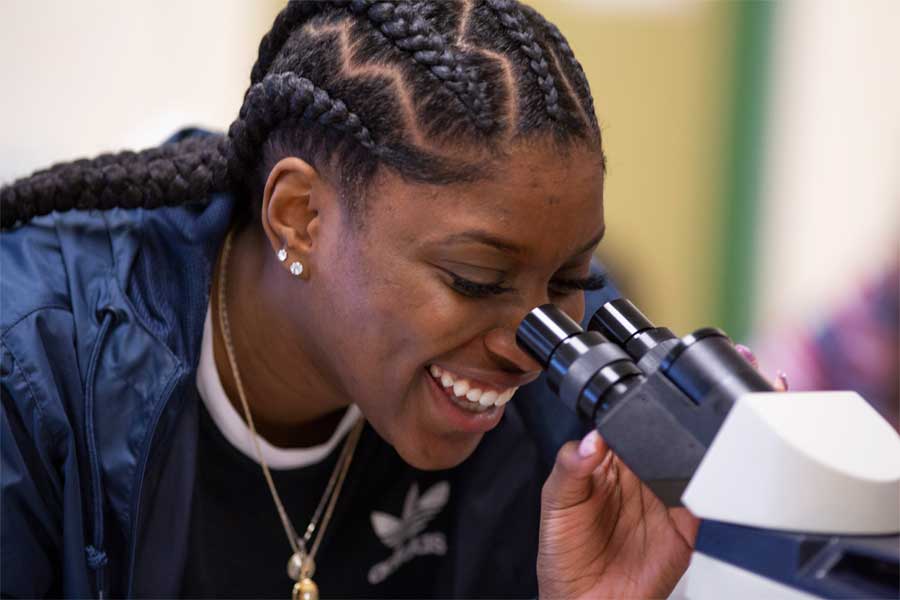
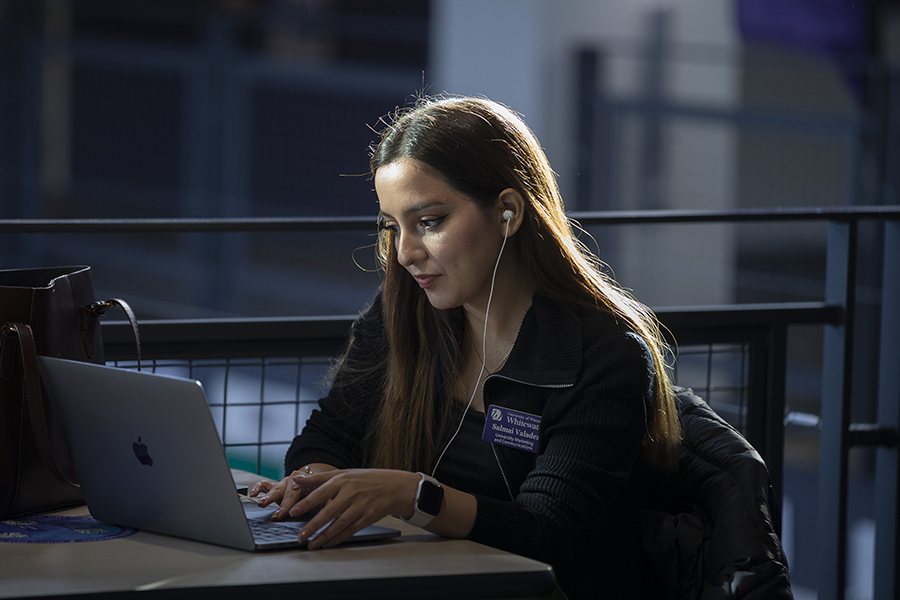
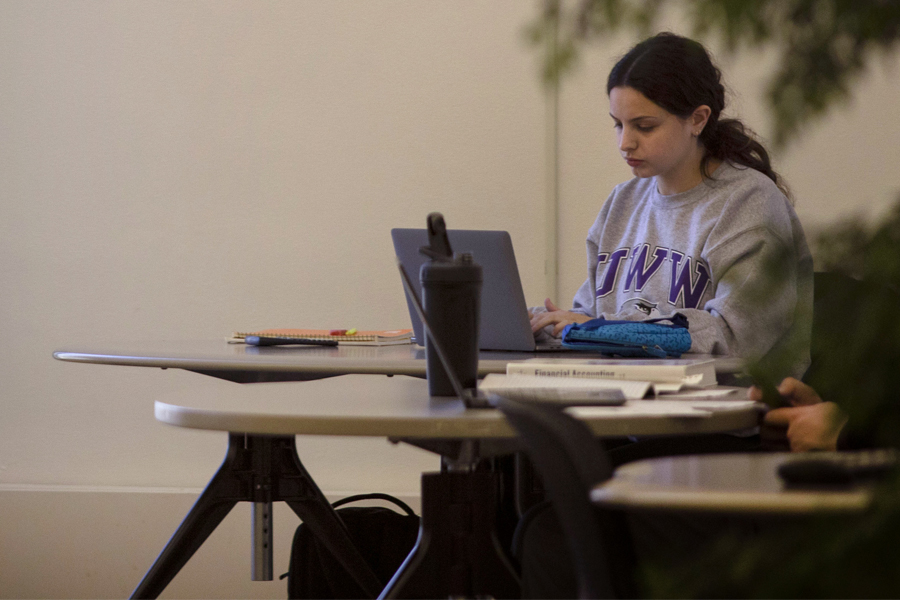
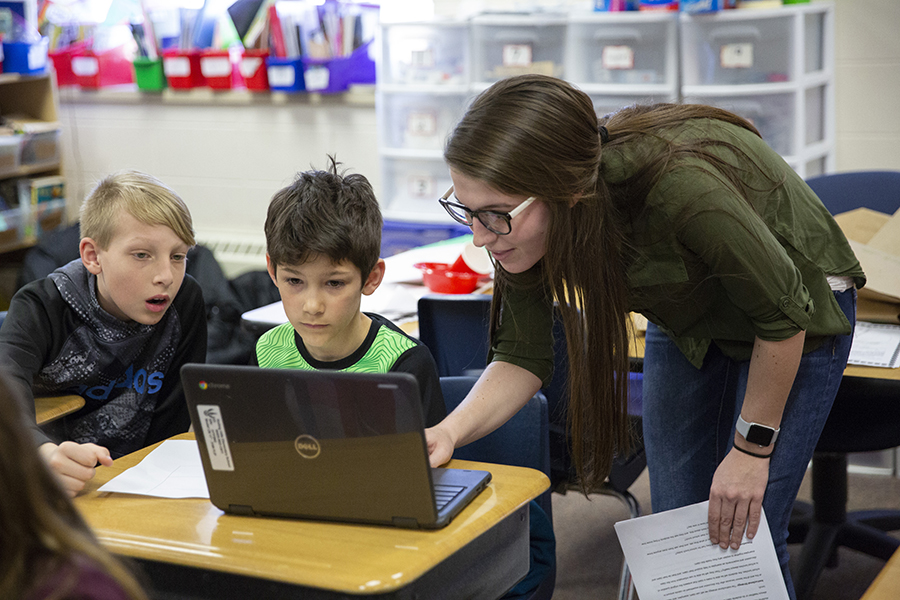
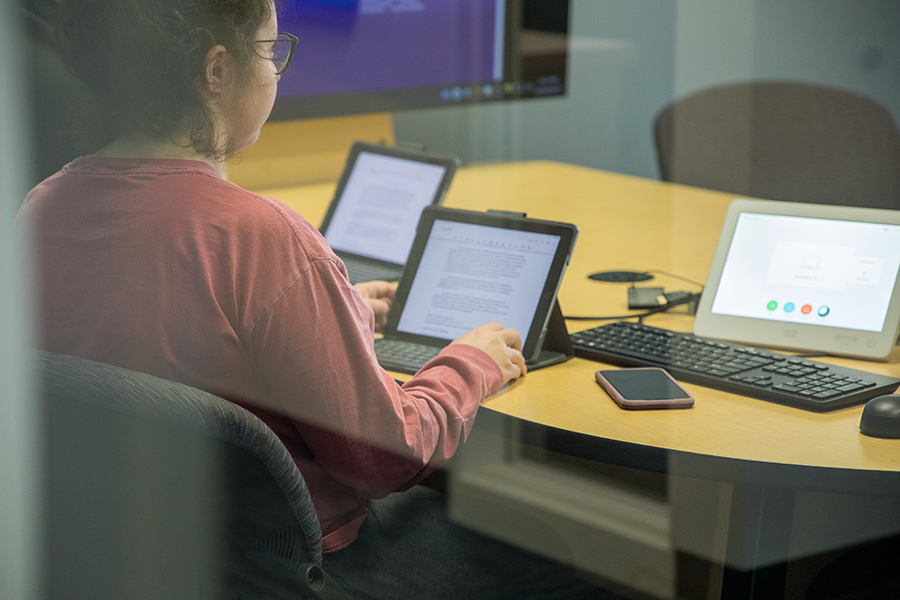
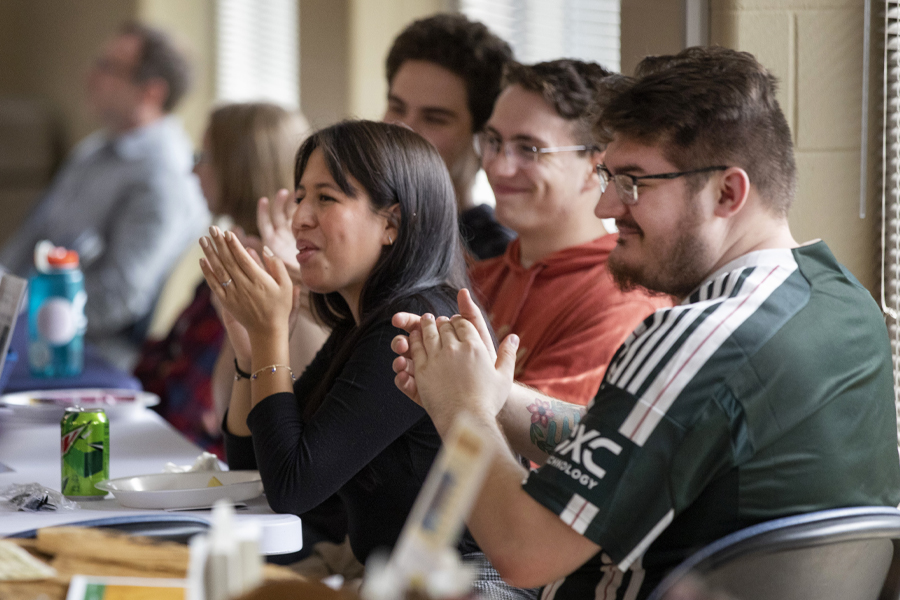
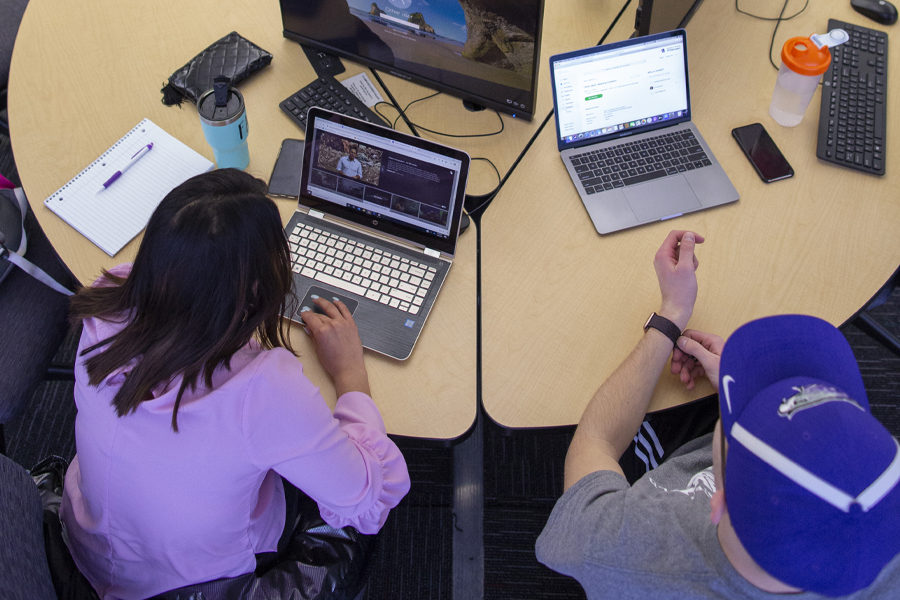


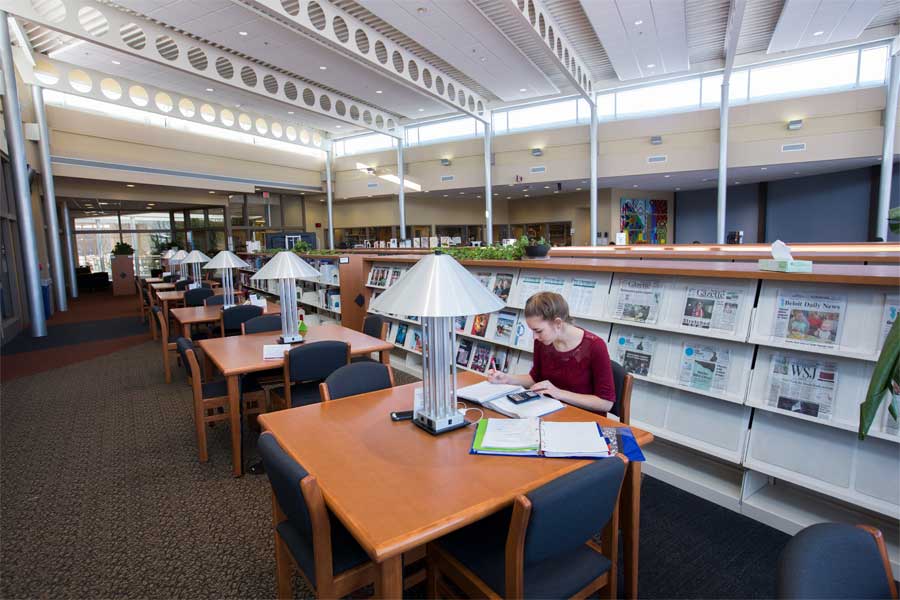
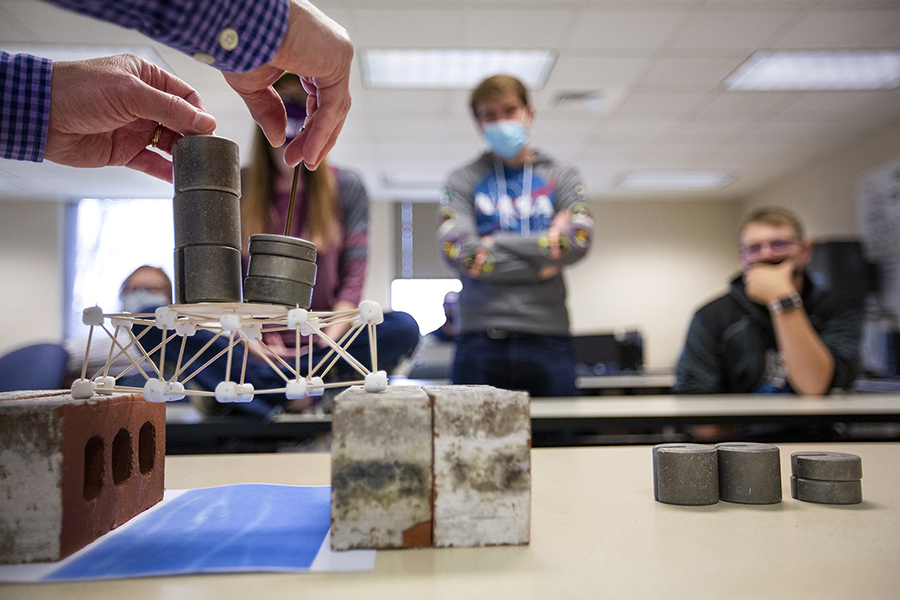
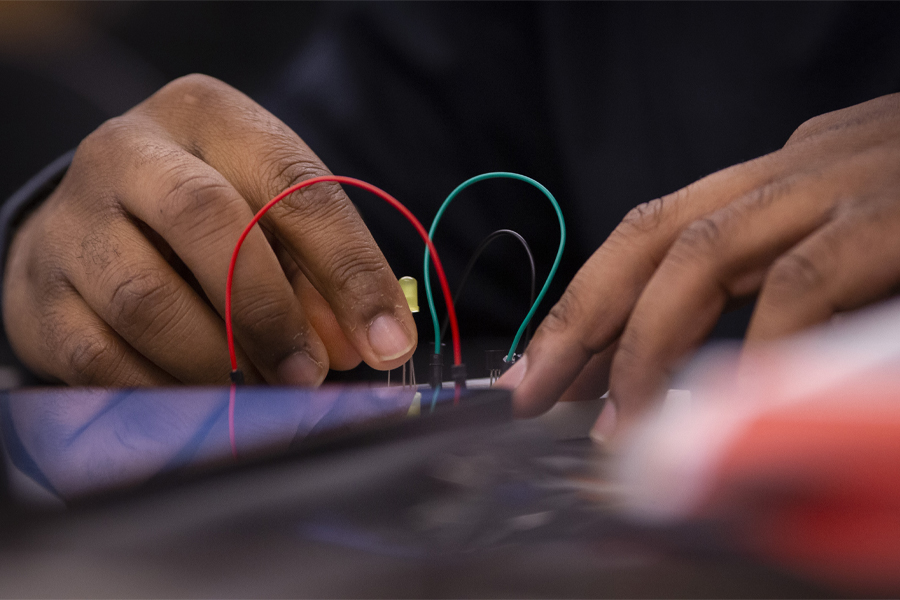
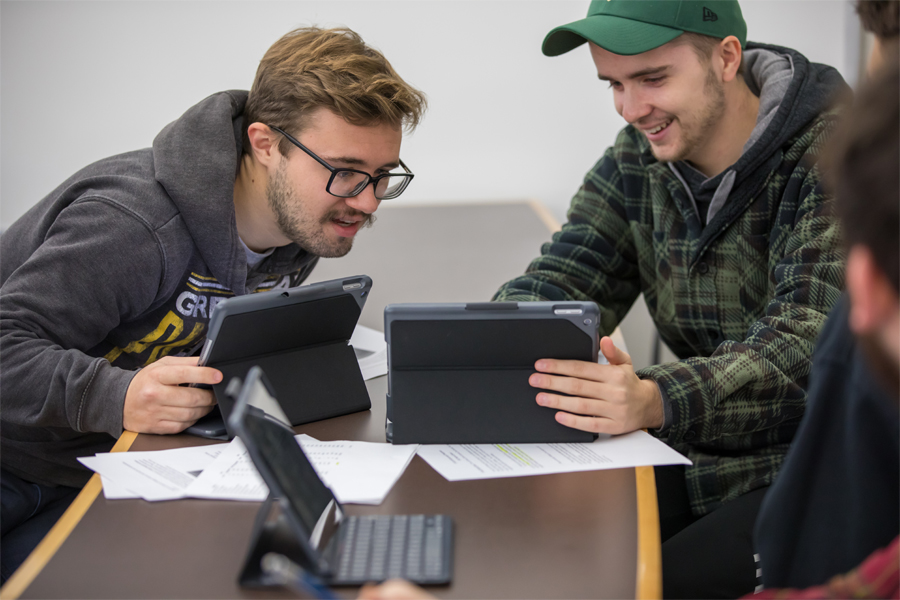
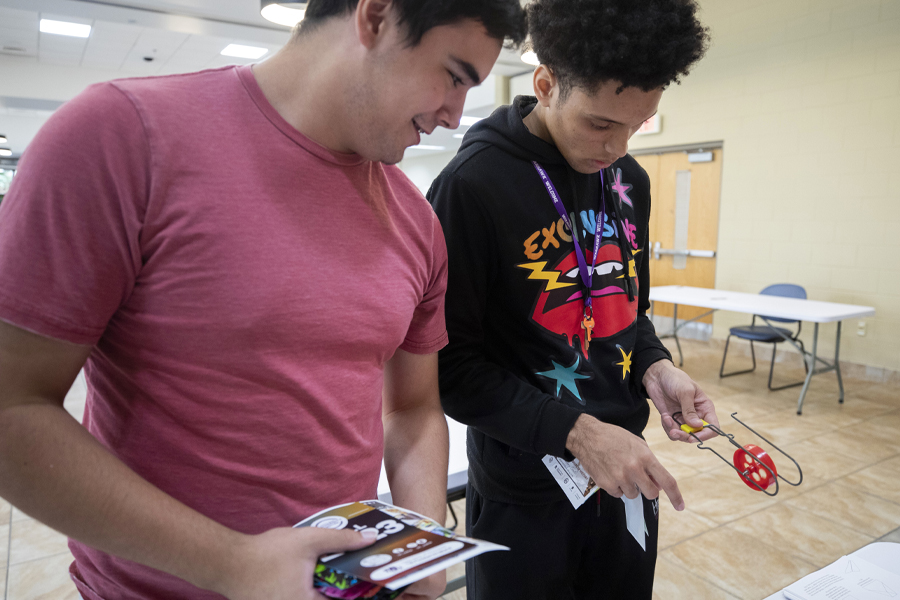
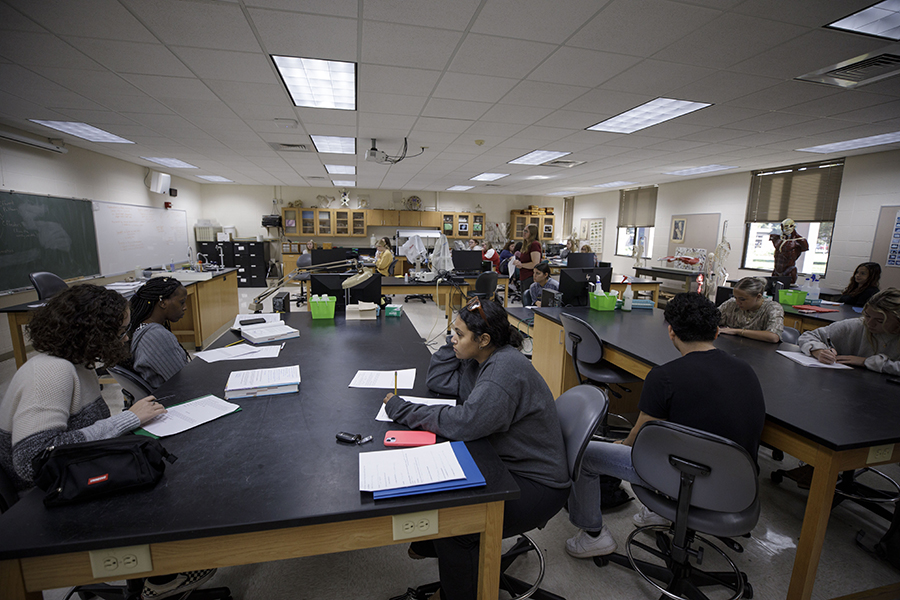
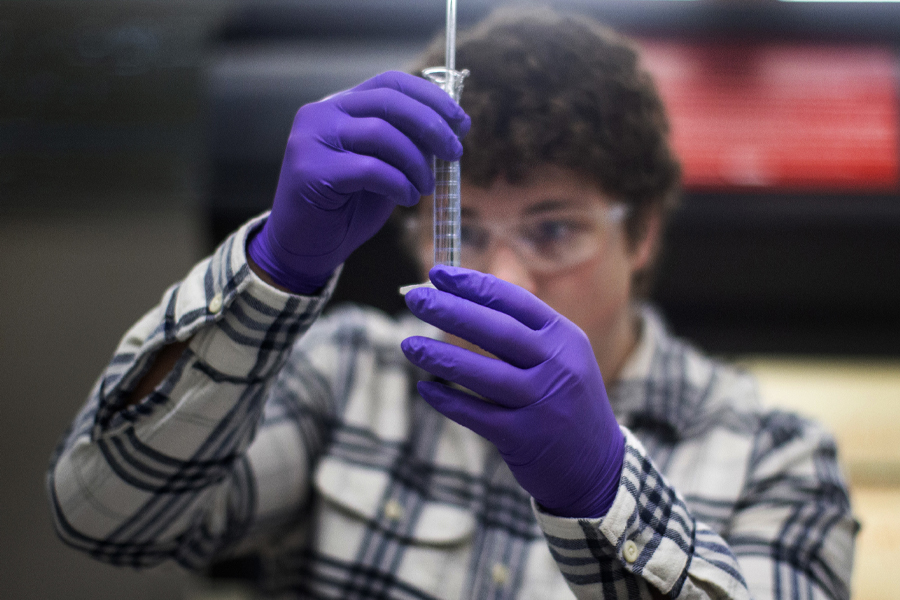
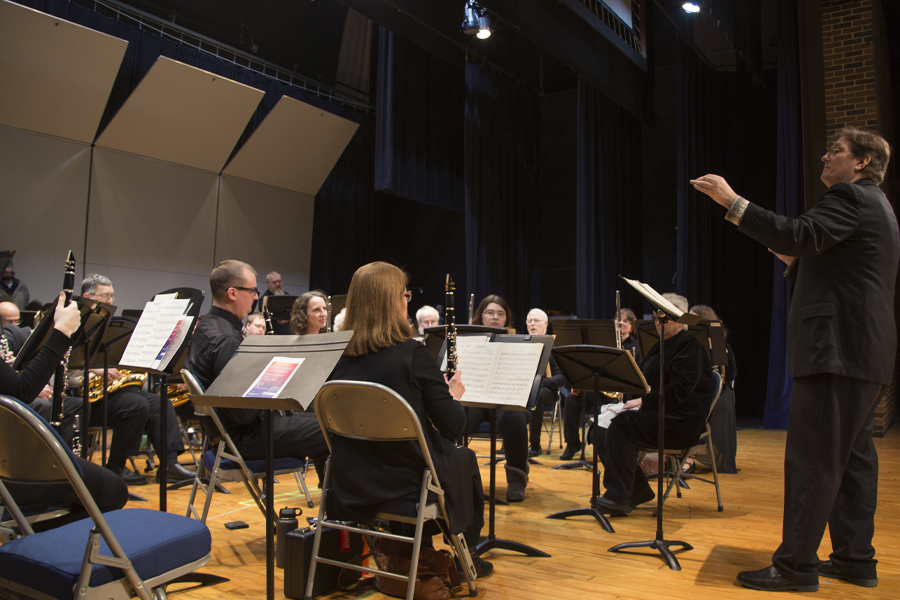
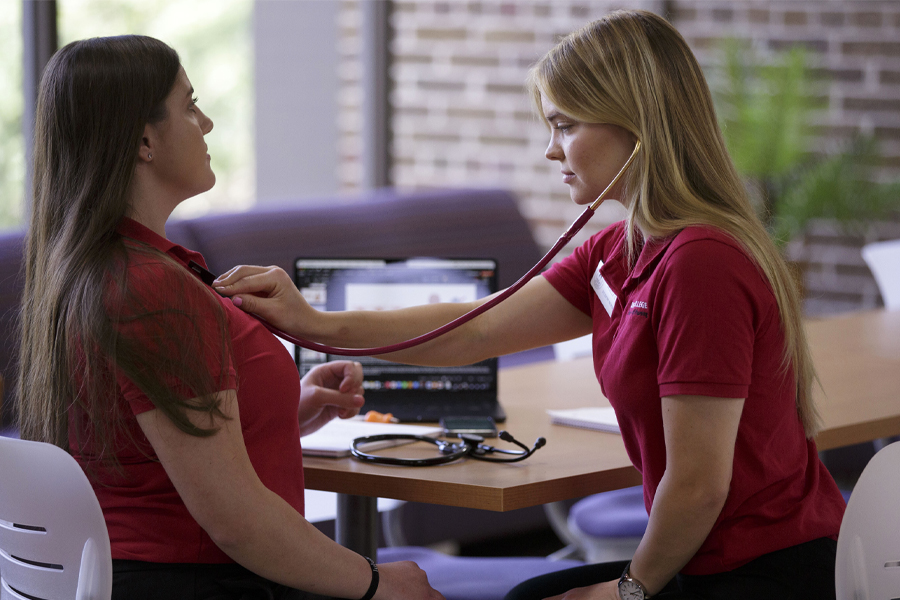
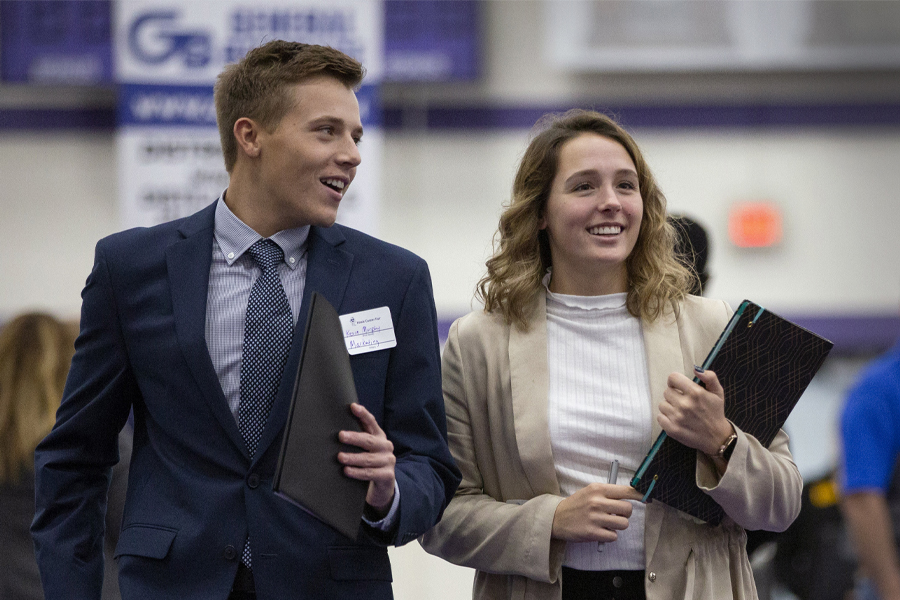
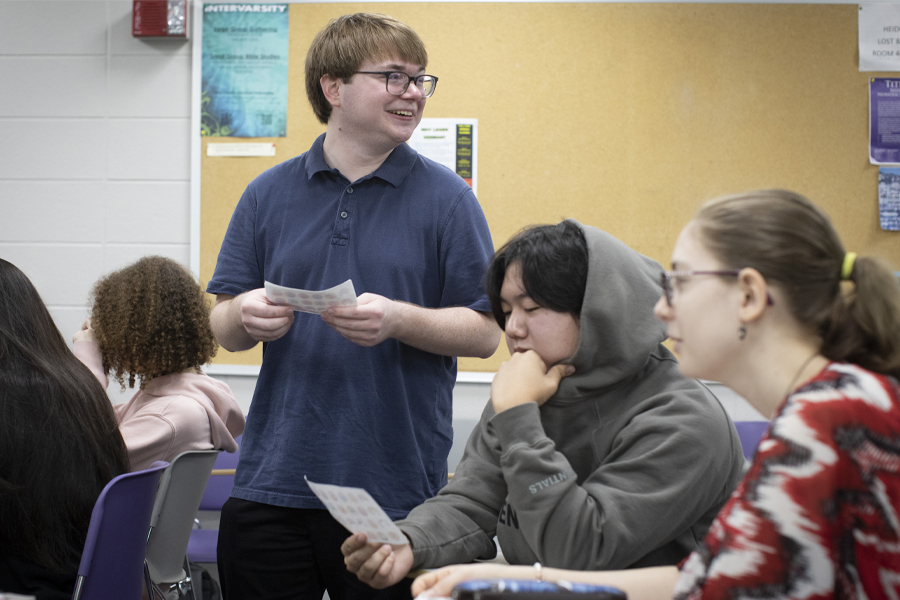
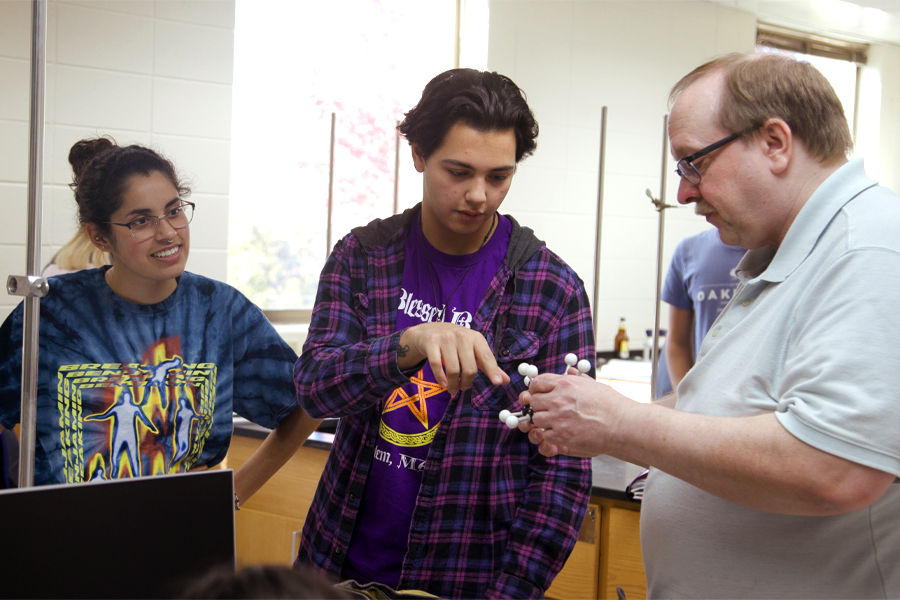
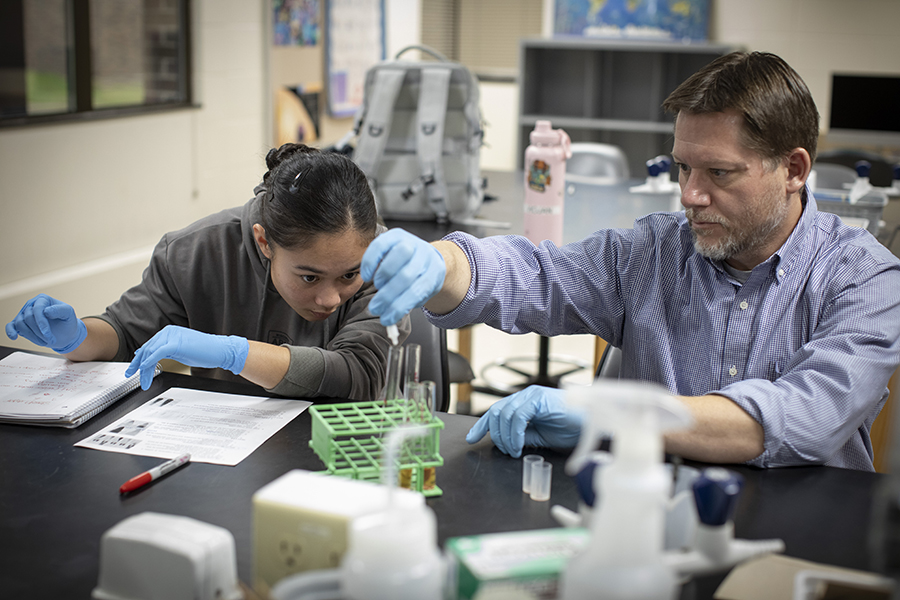
Arts and Sciences
AssociateBy completing this 60-credit degree, you can transfer to any college and into hundreds of potential majors. The AAS degree generally fulfills the first two years of general education requirements in both the humanities and STEM fields and offers guaranteed admission into all UW System colleges and universities.
BAAS (Applied Arts and Sciences)
Online Bachelor'sComplete your bachelor's degree online. Students will receive a well-rounded education on a multitude of subjects, including global studies, human cultures, marketing and communications, professional writing, and more, all preparing you for various career tracks.
BAAS (Criminology)
Online Bachelor'sStrengthen your knowledge on law enforcement and criminal behavior with an online Criminology major. Through this emphasis, you will take courses on police and court sociology, women and crime, minorities in the criminal justice system, humanities and social sciences, and much more.
BAAS (Digital Marketing)
Online Bachelor'sWith an online Digital Marketing major, students will learn the social science and communication strategies behind the world of digital marketing. With courses on social media marketing, the principles of marketing, humanities, omnichannel marketing, and more, students will gain the specialized knowledge they need for a successful career in exciting field.
BAAS (Education)
Online Bachelor'sDesigned for students who have successfully completed the 60-credit AAS in Foundations of Teacher Education (FoTE) in the Wisconsin Technical College System and who want to earn a bachelor’s degree to be certified for a Wisconsin elementary and middle school educator license.
BAAS (Human Services)
Online Bachelor'sLooking to make a positive impact and change in the lives of others? An major in Human Services can open a door to many opportunities in a multitude of social science-related careers. With an online track specifically designed to smoothly transition students into a Master of Social Work program, this emphasis will provide you with courses on child welfare, the biology of aging, gender, race, and ethnicity studies, cultural understanding in the health and safety fields, social work, and much more.
BAAS (Leadership)
Online Bachelor'sAdvance your current career or jump into a new one involving the organization and leadership of others with an online major in Leadership. Through this program, you will take courses on communication-related subjects, such as persuasion, organizational psychology and social science, conflict resolution, cross cultural and intercultural communication, management, and more, all preparing you to lead people to success.
BAAS (Occupational Safety)
Online Bachelor'sEnter a career focused on the safety of those in the workforce with an online major in Occupational Safety. Through this well-designed program, students will take courses on many subjects including health and safety, environmental management, accident prevention, construction industry safety, ergonomics, and more.
BAAS (Operations and Supply Chain Management)
Online Bachelor'sThe Operations and Supply Chain Management emphasis is for those looking for an impactful career in a rapidly growing, tech-driven field where they will position resources — people, money, machinery, facilities, material and information — effectively.
BAAS (Professional Selling)
Online Bachelor'sStudy the complex psychological, sociological, and financial aspects of sales with an online major in Professional Selling. Students with this specific emphasis will take courses on subjects such as business marketing, communications, principles of selling, sales management, entrepreneurial techniques, social sciences, and more, giving them the training they need to enter a career involving marketing, management, and/or business analysis.
Effective Workplace Communication
Certificate (Undergraduate)Employers consistently list effective communication as the primary skill they want new employees to have. This certificate program provides intensive study of written and oral communication skills that will your enhance professional, social and personal interactions and make you more competitive and effective in the workforce.
Engineering
Associate, Major/Emphasis, Pre-ProfessionalThrough our partnership with UW-Platteville, you can complete a Bachelor of Science degree in Mechanical, Electrical, or Industrial Engineering without leaving the Rock County area. Or you can significantly reduce the cost of your education by starting your engineering degree at Rock and completing at many other institutions.
Engineering (Electrical)
Major/Emphasis, Pre-ProfessionalThe demand and importance of electrical engineers is constantly growing. With an emphasis in Electrical Engineering, students will study the ins and outs of electrical device creation, makeup, design, and testing, preparing them for careers in circuit design, biomedicine, automotive design, and more.
Engineering (Industrial)
Major/Emphasis, Pre-ProfessionalInterested in a hands-on approach to work towards a safer and more sustainable environment? Then an emphasis in Industrial Engineering may be perfect for you. Through this customizable program, students will gain knowledge on the branch of engineering that focuses on improving working conditions.
Engineering (Mechanical)
Major/Emphasis, Pre-ProfessionalJoin one of the most versatile engineering career fields after completing the Mechanical Engineering emphasis track. Those trained in this specific branch of engineering are fit for a wide range of in-demand jobs, such as those involving robotics, automotive design, manufacturing and testing, and much more.
Medical Sciences (Diagnostic Sonography)
Major/EmphasisMedical sonographers use high-frequency sound waves (ultrasound) to create images of internal organs, tissues, and blood flow. These images help physicians diagnose conditions, monitor pregnancies, and assess organ function. UW-Whitewater at Rock County’s hands-on program will give you the knowledge and credentials you need to engage in this growing field.
Medical Sciences (Radiologic Technology)
Major/EmphasisRadiologic technologists specialize in using X-rays, MRIs, CT scans, and other imaging technologies to detect injuries and diseases. They work alongside physicians to capture high-quality diagnostic images and assist in patient treatment. UW-Whitewater at Rock County’s hands-on program will give you the knowledge and credentials you need to engage in this growing field.
Music
Certificate (Undergraduate)Take courses that will prepare you for a bachelor's degree in music or strengthen your knowledge and skills in music.
Nursing
Associate, Major/Emphasis, Pre-ProfessionalBecome a nurse through this accredited program that places Edgewood University’s nursing program in Rock County, complete with a full faculty and an innovative healthcare curriculum that integrates classroom instruction with hands-on clinical and simulation experiences.
Pre-Business
Pre-ProfessionalTaking pre-business courses on the Rock County campus will prepare you to move to the Whitewater campus — where you’ll find an AACSB-accredited college of business that’s the biggest in the state — or transfer to another university of your choice.
Pre-Education
AssociateStudy the concepts that are foundational to becoming an educator, focusing on the subjects of youth psychology, culturally aware teaching, and public speaking. With an associate degree in hand, you can move on to the Whitewater campus — or transfer to another university of your choice — for a bachelor's degree in education.
Pre-Food Science
AssociateThis specific emphasis will provide students with the first two years of a Food Science bachelor's degree through courses on microbiology, general chemistry, chemistry for occupational applications, and more.
Pre-Health
Pre-ProfessionalTaking pre-health courses on the Rock County campus will prepare you for the Collaborative Nursing BSN program with Edgewood College or other health-related degrees on the Whitewater campus or another university of your choice.

